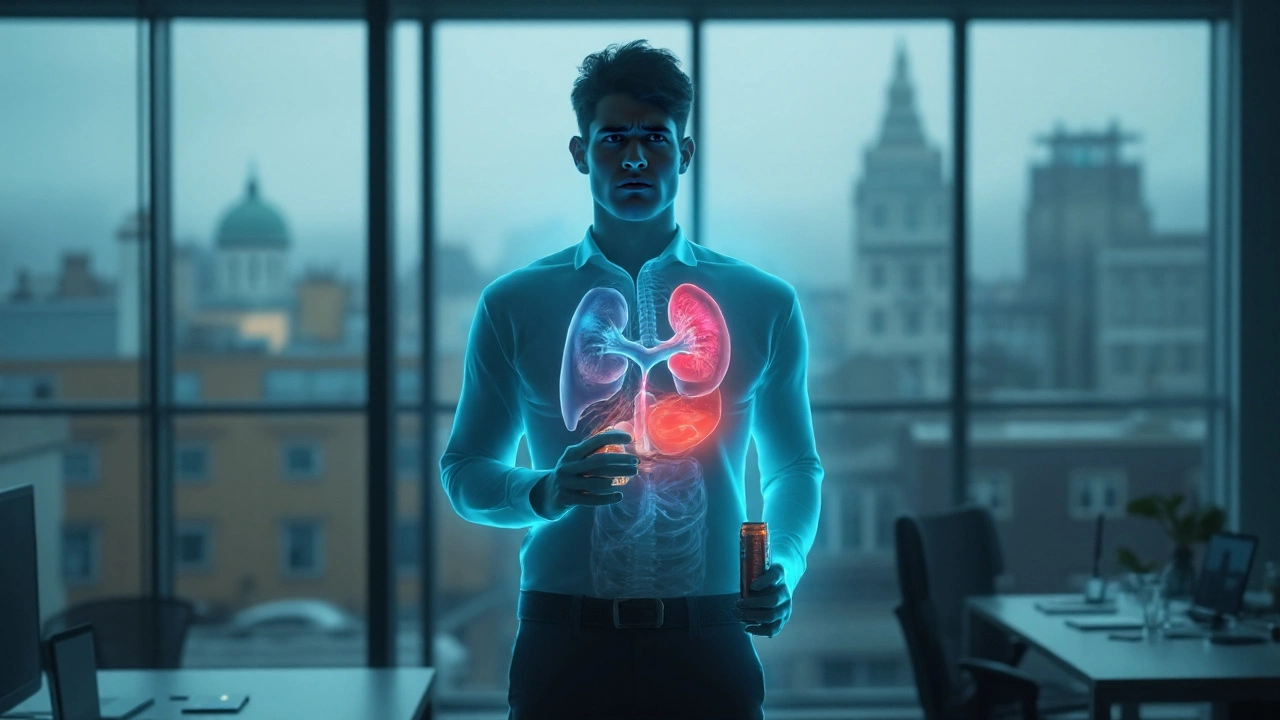Energy Drinks & Liver Health – Quick Facts and Safe Tips
Energy drinks promise a fast pick‑me‑up, but they also send a lot of chemicals straight to your liver. If you drink them often, your liver has to work harder to break down caffeine, sugar, and added vitamins. That extra load can lead to inflammation, reduced detox ability, or even liver strain over time. Below we break down what actually happens and how you can keep your liver happy while still getting a boost.
How Energy Drinks Impact the Liver
Caffeine is the main stimulant in most cans, and the liver is the hub that clears it from your bloodstream. A single 250 ml can can contain as much as 80 mg of caffeine – roughly the amount in a strong cup of coffee. When you add high‑fructose corn syrup or lots of sugar, the liver also has to process those carbs, which can increase fat buildup in liver cells.
Many brands mix taurine, B‑vitamins, and herbal extracts. While those ingredients are generally safe in small doses, the combined effect can overload the liver’s metabolic pathways. If you also drink alcohol‑infused energy drinks, the risk jumps because both caffeine and alcohol compete for the same liver enzymes, slowing down alcohol clearance and raising blood pressure.
Research links heavy energy‑drink consumption to higher levels of liver enzymes – a sign that liver cells are stressed. The same studies also note that people who habitually drink more than three cans a day are more likely to develop non‑alcoholic fatty liver disease (NAFLD). That doesn’t mean one can will ruin your liver, but the pattern matters.
Practical Tips to Keep Your Liver Safe
First, limit intake. Most health guides recommend no more than 400 mg of caffeine per day – that’s about five regular cups of coffee or three energy drinks. If you’re already drinking coffee, cut back on the cans to stay under the limit.
Second, choose low‑sugar or sugar‑free versions. Sugar forces the liver to convert excess carbs into fat, which can accumulate over time. Zero‑calorie energy drinks still have caffeine, so they’re a better option if you’re watching sugar, but watch the artificial sweeteners if you’re sensitive.
Third, stay hydrated with water. Caffeine is a diuretic, and dehydration makes the liver work harder. Drinking a glass of water after each can helps flush out metabolites and protects kidney function, which is closely tied to liver health.
Fourth, pair your drink with food. Eating protein or healthy fats slows caffeine absorption, giving your liver a gentler processing rate. A handful of nuts or a piece of fruit with your beverage can make a big difference.
Finally, listen to your body. If you notice a constant “flutter” in your chest, frequent headaches, or unusual fatigue after drinking, those could be early signs of liver stress or caffeine overload. Cutting back for a week and seeing if symptoms improve is a simple self‑test.
Remember, you don’t have to ditch energy drinks completely. Using them sparingly – maybe on a workout day or when you need an extra mental push – keeps the liver from taking a beating. Combine smart choices with regular check‑ups, and you’ll enjoy the boost without risking liver health.
Explore how energy drinks affect liver and kidney health, the role of caffeine, sugar, and additives, and learn safe consumption tips backed by recent research.

